Rectal Cancer — Conservative treatment With 1 Course of Chemotherapy in the Best Hospitals of Germany
Treatment prices are regulated by national law of the corresponding countries, but can also include additional hospital coefficients. In order to receive the individual cost calculation, please send us the request and medical records.

Department of Oncology
The Department of Oncology offers high-precision diagnostics and comprehensive treatment of oncological diseases, including palliative care for patients with terminal stages of malignancies. The specialized Cancer Center Berlin-Buch also operates on the basis of the department, which allows treating patients in interdisciplinary cooperation with the involvement of various specialists. The doctors of the department have rich experience in treating patients with oncopathologies, and also have a perfect command of all the modern and most effective therapeutic methods. The department is certified in accordance with the standards of the German Cancer Society.
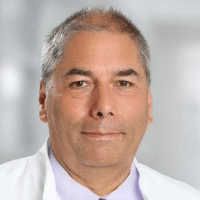

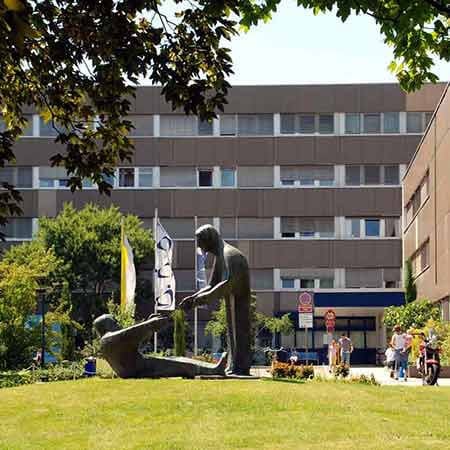
Department of Hematology and Oncology
The Department of Hematology and Oncology treats solid malignant tumors of various localizations, blood cancer, and benign hematopoietic pathologies. A qualified team consisting of oncologists, hematologists, psycho-oncologists, physiotherapists, and experienced nursing staff takes care of the health of patients. Whenever required, doctors from related medical fields are also involved in the therapeutic process. All specialists make every effort to provide patients with effective and personalized medical services while surrounding them with care. The department is part of the Cancer Center of the hospital, which is certified according to the requirements of the German Cancer Society (DKG). The department prefers a multidisciplinary approach, holding weekly tumor boards with the participation of oncologists, hematologists, radiation therapists, and surgeons, as well as highly specialized experts in gynecology, urology, gastroenterology, pulmonology, etc. The department's specialists have in their arsenal modern treatment methods for malignant diseases, including chemotherapy, targeted therapy, immunotherapy, hormone therapy, and many others. Patients with advanced stages of cancer are offered palliative care aimed at alleviating pain syndrome and ensuring a decent quality of life.
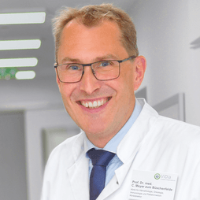

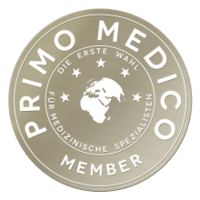
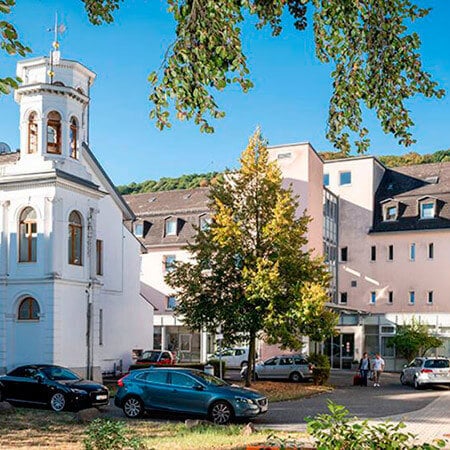
Department of Oncology and Palliative Care
The Department of Oncology and Palliative Care provides palliative treatment for patients with incurable diseases. The goal of the department's physicians is to alleviate the symptoms of the disease and improve the quality of life. The department's specialists take an individual approach to each patient, always respecting the patient's wishes. A competent multidisciplinary team, consisting of palliative care specialists, nurses, psycho-oncologists, physiotherapists and social workers, works here for the benefit of the patients.
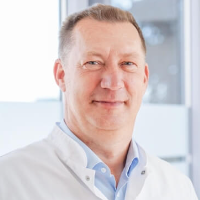



Colorectal cancer is treated using several methods simultaneously. Starting from stage 2, chemotherapy is used in most patients. It can be combined with radiation, radical and palliative surgery. At the last stage of the disease, it becomes one of the main treatment methods that can inhibit tumor growth and increase a person's life expectancy.
At what stages can chemotherapy be used?
Chemotherapy cannot be used at stage 0, when the tumor does not spread beyond the rectal mucosa. It can be used very rarely at stage 1, but only if during the operation it turned out that the neoplasm had spread further than originally thought. At all other stages, the technique can always be used:
- Stage 2 – chemotherapy is mostly used after surgery to reduce the risk of tumor recurrence after radical treatment of rectal cancer.
- Stage 3 – chemotherapy is often carried out prior to surgery to reduce the tumor in size and increase the likelihood of total tumor removal.
- Stage 4 – chemotherapy, along with radiation, can be used as the main method to help inhibit tumor growth. Radical surgery cannot be always performed at this stage.
What types of chemotherapy can be used?
There are two types of chemotherapy:
- systemic chemotherapy involves the administration of drugs into the body in one way or another, after which they penetrate the systemic circulation and spread throughout the body;
- regional chemotherapy involves the administration of drugs only in a certain area where they are concentrated in large quantities.
Each method has its advantages and disadvantages.
Systemic therapy is more common. It is effective because it acts on cancer cells wherever they are. Nonetheless, the drawback of this treatment is that it also affects healthy cells, especially those that divide quickly. Therefore, patients have many side effects, such as nausea, hair loss, problems with hematopoietic bone marrow function. However, most side effects are reversible. They disappear some time after the completion of chemotherapy.
Regional chemotherapy is less commonly used. It involves the administration of drugs into the body cavities or arteries that feed certain organs and tissues. The advantage of this approach is that it creates huge concentrations of drugs. Such doses cannot be administered when conducting systemic treatment due to negative effects on the human body. The downside is the invasiveness of the treatment procedure and its limitations. The regional therapy affects only certain foci of the tumor tissue, but does not affect distant metastasis.
What is the procedure of systemic chemotherapy?
In the course of systemic treatment, the drugs are administered intravenously or orally in the form of pills. How they will be used depends on the bioavailability of the drug. If it is able to be fully absorbed in the gastrointestinal tract, there is no need to administer the drug into a vein. However, some drugs are not able to penetrate the bloodstream from the digestive system.
The therapy involves the use of at least 2 drugs. One treatment cycle lasts from 2 to 4 weeks. The patient requires several such cycles. There are made some breaks between these cycles to let the body recover. The total duration of chemotherapy is 6 months.
The doctors use different combinations of drugs. The scheme, number of drugs, the duration of treatment is determined based on the particular clinical course of the disease, the histological type of the tumor, the patient’s health status, tolerability of the treatment and the intermediate results (tumor response to chemotherapy). This treatment method is often combined with targeted therapy and radiation.
What is the procedure of regional chemotherapy?
The regional chemotherapy can be rarely used to treat rectal cancer, but in some cases it helps to improve the results of other treatments. The scope of application of the regional therapy includes:
- in case of tumor spread into the abdominal cavity, the doctors carry out intraperitoneal chemotherapy;
- in case of metastatic foci in the liver, the doctors perform hepatic artery embolization (emboli block the access of blood to the tumor, as well as affect it with large doses of cytostatics).
Combination with other methods
Chemotherapy can almost never be used as the only way to treat cancer. It is combined with other methods:
- Surgical treatment – chemotherapy is either prescribed before surgery to reduce the size of the tumor or after tumor removal to reduce the risk of relapse.
- Radiation – chemotherapy is mostly combined with radiation therapy, unless the patient does not tolerate treatment. In this case only one of these methods can be used.
- Targeted therapy, immunotherapy – chemotherapy in combination with these methods, as well as with radiation, is mostly used for the treatment of rectal cancer of the last stage, when radical surgery cannot be performed.
Chemotherapy can be combined not only with radical, but also with palliative surgery. They are performed to reduce symptoms, normalize the removal of feces from the rectum, prevent severe bleeding. The drugs can inhibit tumor growth and increase the life expectancy of a person, even in advanced forms of the disease.
Treatment in Germany with the Booking Health company
To undergo rectal cancer treatment in Germany, you can contact the specialists of the Booking Health company. We specialize in the organization of treatment abroad. When booking treatment via the Booking Health service, you will get a number of benefits:
- Selection of the best hospital in Germany, the doctors of which specialize in the fight against rectal cancer and have outstanding achievements in this field of oncology.
- Reduced costs of diagnostics and treatment due to the lack of overpricing and coefficients for foreign patients.
- Appointment with a doctor on the most suitable dates.
- Preparation of a diagnostic and treatment program in Germany taking into account the previous examinations.
- Establishment of communication directly with an attending physician.
- Monitoring all stages of the program.
- Control of invoices, return of unspent funds.
- Buying and forwarding of medicines.
- Organization of additional cancer diagnostics, treatment or rehabilitation.
- Communication with a medical center after rectal cancer treatment in Germany.
The Booking Health company will provide you with all the necessary services. We will book a hotel and airline tickets, meet you at the German airport and deliver to the hospital.

